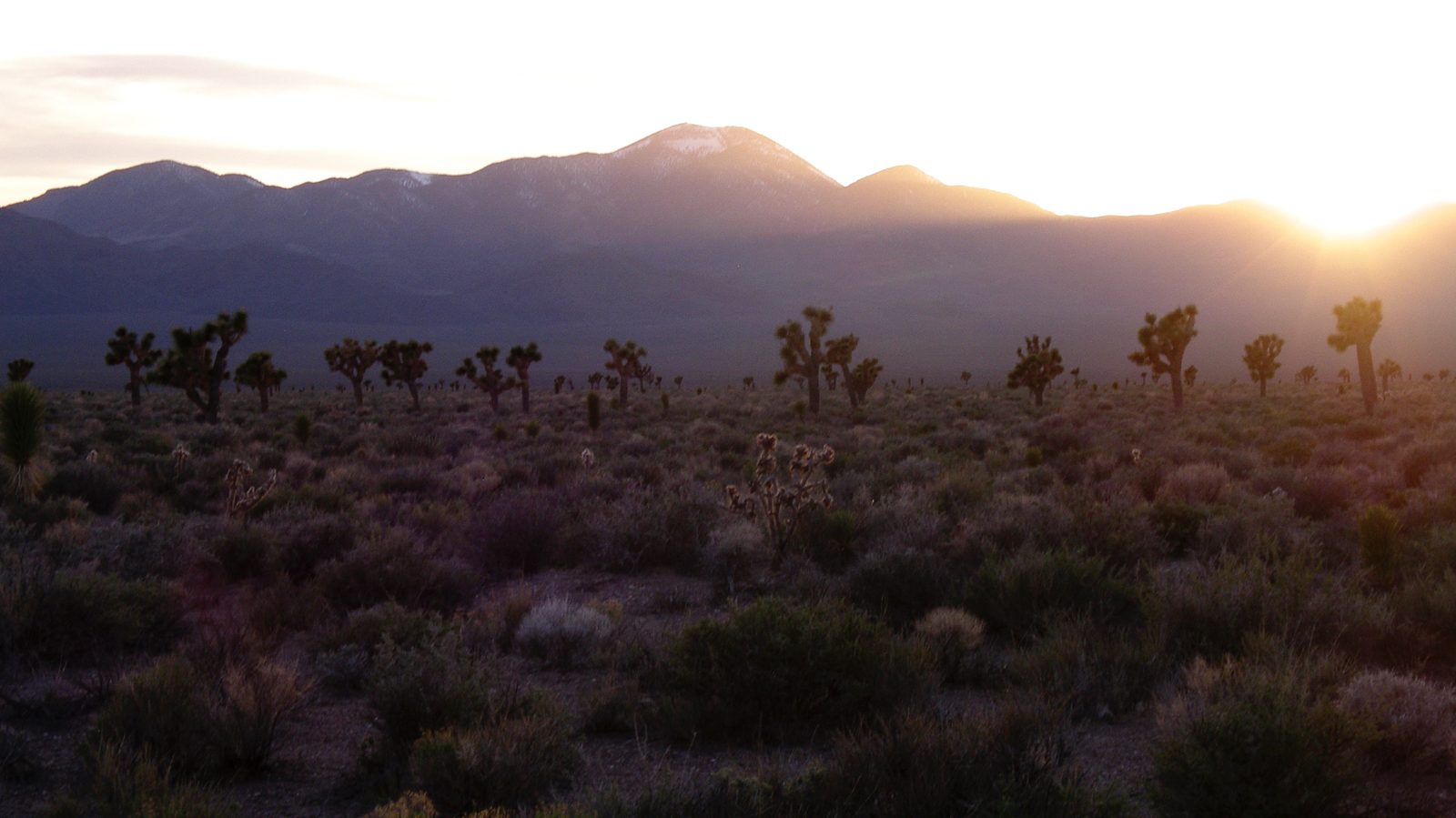The Joshua Tree Genome Project gets big boost with NSF funding

New collaborative grants from the National Science Foundation will support the Joshua Tree Genome Project in studying how one of the most distinctive plants in the Mojave Desert has adapted to the drought and heat of its home range, how extreme desert climates shape the trees’ peculiar relationship with pollen-carrying moths, and how the genetic information within genomes is re-organized over millions of years.
The grants to Willamette University and California State University Northridge, totaling more than $1.5 million, will pay for the assembly of a Joshua tree reference genome and extensive tests of Joshua tree seedlings in experimental gardens. From this, it will be possible to identify genes that help the trees cope with different climate conditions, and pinpoint how different environmental factors have affected their evolution. To conduct the work, the grants will support research experiences for undergraduate students and interns, graduate student thesis projects, and the expansion of a pilot program in which community volunteers across the Mojave learn to map and monitor Joshua tree populations in their own backyards.
All this data collection will answer a longstanding question about Joshua trees, and the history of life on Earth more generally: whether environmental extremes have done more to shape the trees’ evolution than interactions with other living things. Joshua trees are one half of a textbook mutualistic interaction. The trees are pollinated by yucca moths, which lay eggs in the flowers they pollinate. As the fertilized flowers develop into fruit, the moths’ eggs hatch and their larvae feed on developing Joshua tree seeds. The yucca moths have no other food source beyond the small fraction of Joshua tree seeds that they eat, and they fertilize flowers so effectively that the trees have no other pollinators. If such a hyper-specialized mutualism has not played a greater role in the evolution of Joshua trees than climate, it would suggest that species interactions more generally — which are rarely as interdependent as Joshua tree and yucca moths — may not have had the role in the history of life that biologists have supposed.

“Receiving this award from NSF’s Rules of Life program is the culmination of a long term vision that has been years in the making,” said Chris Smith, a Professor of Biology at Willamette University and Principal Investigator on the project. “The relationship between Joshua trees and their pollinators is an evolutionary puzzle that dates back to Charles Darwin. With the completion of the genome and an in-depth study of the tree’s adaptations for climate, we may finally understand how genes and the environment interact to shape this amazing relationship.”
Simply looking at Joshua tree’s adaptations to climate is a big step forward, noted collaborator Karolina Heyduk, a plant physiologist and Assistant Professor of Botany at the University of Hawai’i Mānoa. “I think we’re going to start to better understand the nuances of desert adaptation through this work, and what that means for species’ survival under climate change.”
Assembling a reference genome sequence for Joshua trees will be a challenge, and may reveal something about how the organization of genomes evolves over very long periods of time, said Michael McKain, an Assistant Professor of Biology at the University of Alabama who will bring his expertise on DNA sequence analysis to bear on the problem. “Joshua tree is a polyploid, meaning that millions of years ago, one of its ancestors acquired a whole duplicate copy of its genome. Over time, these copies are broken up and duplicate genes are often lost.”
Such duplicate genes can also be fodder for the evolution of new, useful traits. “I am very interested to see how the genes that have managed to stay in extra copies have influenced the ability of Joshua tree to survive in the harsh climate of the Mojave,” said McKain. “It is quite possible that an event that occurred over 20 million years ago may still hold bearing on the trajectory of species success today.”
The project will also help protect Joshua trees from the worst effects of climate change, said Jeremy Yoder, an Assistant Professor of Biology at CSU Northridge and another Principal Investigator. “Many Joshua tree populations are already facing warmer temperatures than they’re used to,” he explained, “and there’s an urgent need to identify which populations are at risk, and which ones could harbor gene variants that can help the species adapt to new climate conditions.”
“As evolutionary biologists, we’ve started from a fascination with the deep history of Joshua trees and the traits that make them special,” said Yoder, “but learning about those traits may also help us ensure that the trees have a future.”

You must be logged in to post a comment.